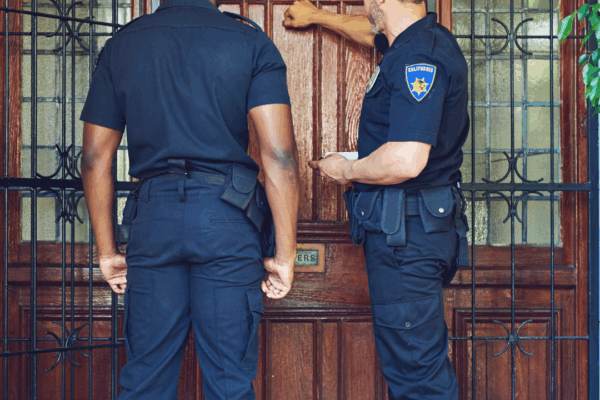DO’S & DON’TS: Police Are at My Door
If police are at your door:
- DO talk with the officers through the door and ask them to show you identification. DON’T invite the officer into your house, even if they politely ask or insist, unless they show you a warrant.
- DO ask for a warrant signed by a judicial officer. A search warrant allows police to enter the address listed on the warrant, but officers may only search the areas and/or for the items listed. An arrest warrant has the name or a description of the person to be arrested.
- DO ask the officer to slip the warrant under the door or hold it up to the window so you can read it.
- DON’T let police in unless they show you the signed warrant that includes your information or information sufficient to identify your address or someone in your home.
DO’S & DON’TS: Searches
Police must have a search warrant with your address that is signed by a judge to legally search your home. Police are limited to searching only the listed areas and for the listed items in the warrant.
If your home is searched:
- DO say, “I do not consent to a search.” However, if police have a warrant, your home can be searched without your consent.
- DO exercise your right to remain silent while police are in your home conducting their search. Say, “I want to remain silent.”
- DO observe what they do, where they go and what they take. Write down everything you observed as soon as you can.
- DON’T run, physically resist, fight back or make sudden movements.
DO’S & DON’TS: Arrests
Police must have probable cause to arrest you.
If you are arrested:
- DO say, “I want to remain silent,” and clearly state, “I want to talk to a lawyer.”
- DO exercise your right to make free phone calls.
- DON’T give any explanations or excuses, or tell police anything except for your name and basic identifying information. Don’t say or sign anything, or make any decisions without a lawyer.
- DON’T talk about your case on the phone with anyone but your lawyer. The police may listen to all calls except for those you make to your lawyer.
Stay Informed
Sign up to be the first to hear about how to take action.
By completing this form, I agree to receive occasional emails per the terms of the ACLU’s privacy statement.
By completing this form, I agree to receive occasional emails per the terms of the ACLU’s privacy statement.

